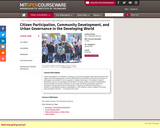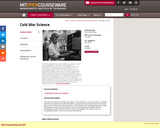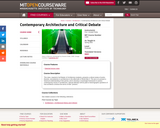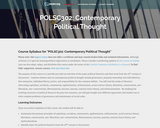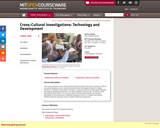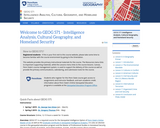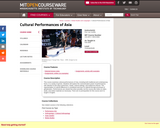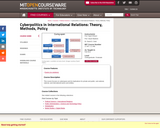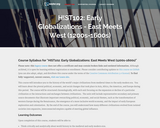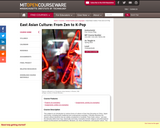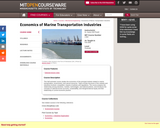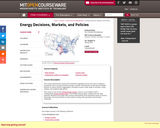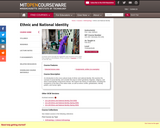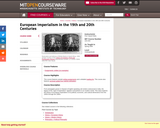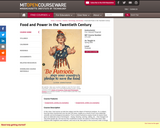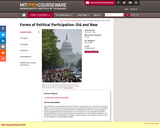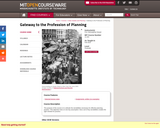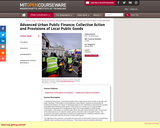
" In analyzing fiscal issues, conventional public finance approaches focus mainly on taxation and public spending. Policymakers and practitioners rarely explore solutions by examining the fundamental problem: the failure of interested parties to act collectively to internalize the positive externalities generated by public goods. Public finance is merely one of many possible institutional arrangements for assigning the rights and responsibilities to public goods consumption. This system is currently under stress because of the financial crisis. The first part of the class will focus on collective action and its connection with local public finance. The second part will explore alternative institutional arrangements for mediating collective action problems associated with the provision of local public goods. The objective of the seminar is to broaden the discussion of local public finance by incorporating collective action problems into the discourse. This inclusion aims at exploring alternative institutional arrangements for financing local public services in the face of severe economic downturn. Applications of emerging ideas to the provision of public health, education, and natural resource conservation will be discussed."
- Subject:
- Business and Communication
- Finance
- Material Type:
- Full Course
- Provider:
- M.I.T.
- Provider Set:
- M.I.T. OpenCourseWare
- Author:
- Hong, Yu-Hung
- Date Added:
- 01/01/2009

